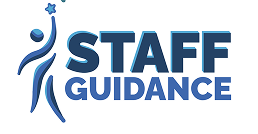In school environments, stress and exhaustion can build up over time. Whether you’re a teacher, administrator, counselor, or support staff member, it’s important to prioritize your well-being.
Long weekends, holiday breaks, and summer vacation can offer great opportunities to reset. But self-care isn’t just for time off; it’s something that can (and should) happen regularly throughout the year.
Here are some self-care strategies for teachers and school staff that support mental wellness all year long.
Why Is Self-Care Important?
School professionals often juggle heavy workloads, emotional labor, and multiple responsibilities. They support students’ academic and emotional growth while managing performance expectations and behavior challenges.
This high-stress environment can contribute to burnout, anxiety, depression, and other mental health challenges (Agyapong et al., 2022).
Self-care strategies can help reduce these effects. And while school breaks are a natural time to focus on wellness, simple, consistent habits throughout the year can make an even bigger impact.
What Is Self-Care?
Self-care is anything you do intentionally to support your mental, emotional, and physical health.
It doesn’t happen automatically; it requires planning. The United Nations International Children’s Emergency Fund recommends blocking off time and actively seeking opportunities to care for yourself (UNICEF, 2025).
Good Mental Health Habits for Daily Life
Taking a break from your normal routine, whether during a holiday, summer, or even a quiet evening, can be a great time to develop new habits. Some low-cost, accessible options that support mental health include:
- Journaling
- Mindfulness exercises
- Creative or relaxing hobbies
Journaling helps people process thoughts and emotions. It can reduce anxiety and depression and encourage healthy behavior change (MHA, 2020). Start by writing freely in a judgment-free space, and take time to reflect.
Mindfulness exercises, like meditation or focused breathing, can help reduce stress, pain, and insomnia (Mayo Clinic, 2022). The Mayo Clinic recommends beginning with simple breathing or body-scan practices at home.
Unplug and Recharge with a Digital Detox
Another self-care practice is a digital detox, stepping away from screens to restore focus and connection.
How Screen Time Affects Mental Health
According to Ohio State University and Brown University researchers, too much screen time is linked to:
- Poor sleep
- Increased anxiety and depression
- Shortened attention span
- Information overload
- Decreased privacy
- Distraction and multitasking difficulties (Mindel, 2023; Brown University, 2023)
Digital Detox Day: A Reset Opportunity
A digital detox challenge involves deliberately taking time away from devices. It might be for a few hours, a full day, or even part of a vacation.
Benefits include:
- Lower stress
- Improved focus and sleep
- Better relationships
- More time for joyful activities (Brown University, 2023)
Brown University offers these self-care tips for managing screen time:
- Make a plan: Identify what’s draining your energy and set boundaries.
- Set device-free goals: Try a phone-free dinner or remove time-sucking apps.
- Let others know: Build support and avoid concerns if you’re slow to reply.
- Reflect: Check in with yourself to see how you feel afterward.
Not sure what to do when you’re offline? Try reading, solving a puzzle, or spending time outdoors.
Bonus: Even a short time in nature has benefits. According to Harvard Medical School, 20 to 30 minutes outside can lower stress hormones (Harvard Medical School, 2019).
Self-Care Strategies That Stick
Stress and burnout are common in schools, but regular self-care can make a difference. Breaks are a great time to start, but small, everyday habits help sustain wellness year-round.
Try out these strategies and share them with your team! They’re practical, meaningful, and designed for real life.
Ask the Digital Mind of Dr. Skinner
Do you need some extra guidance with prioritizing self care? Ask the Digital Mind of Dr. Skinner!
Here are some prompt ideas to start the conversation:
- “What are some practical ways I can start prioritizing self-care in my daily routine?”
- “I feel guilty when I take time for myself. How can I overcome that and see self-care as necessary?”
- “How can I balance self-care with all my other responsibilities without feeling overwhelmed?”
- “What are some small, manageable self-care practices I can try when I’m really busy?”
- “What are some ways to incorporate self-care that also strengthen my relationships with others?”
Click “Start a Conversation” to go to the Digital Mind in your Staff Guidance app.
Sources Cited:
Belinda Agyapong, Gloria Obuobi-Donkor, Lisa Burback, Yifeng Wei. “Stress, Burnout, Anxiety and Depression among Teachers: A Scoping Review.” August 27, 2022. https://pmc.ncbi.nlm.nih.gov/articles/PMC9518388/
Brown University. “What is a Digital Detox and Do You Need One?” June 8, 2023. https://www.brownhealth.org/be-well/what-digital-detox-and-do-you-need-one
Harvard Medical School. “A 20-minute nature break relieves stress.” Mind and Mood. July 1, 2019. https://www.health.harvard.edu/mind-and-mood/a-20-minute-nature-break-relieves-stress
Jessie Mindel, MD, and Phillip Yuhas. “How less screen time benefits your eyes, brain, mental state and overall health.” Ohio State University. July 27, 2023. https://health.osu.edu/health/mental-health/how-screen-time-affects-your-health
Mayo Clinic. “Mindfulness Exercises.” October 11, 2022. https://www.mayoclinic.org/healthy-lifestyle/consumer-health/in-depth/mindfulness-exercises/art-20046356
Mental Health of America. “How to Keep a Mental Health Journal.” 2020. https://screening.mhanational.org/content/how-keep-mental-health-journal/
UNICEF. “Self-Care Tips for Teachers.” 2025. https://www.unicef.org/learning-crisis/self-care-tips-for-teachers
